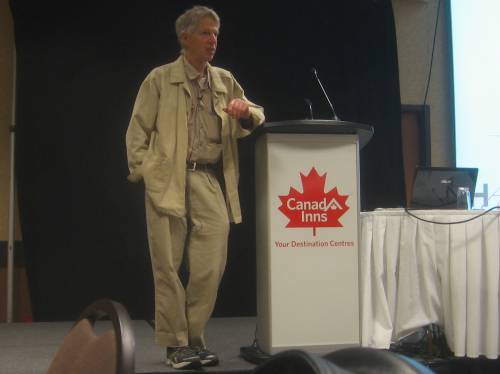
Sunday morning began without a breakfast buffet at the hotel, but otherwise everything in Winnipeg was right on track. Dr. Arthur Schafer of the University of Manitoba gave a slow and nuanced talk about the recent Carter ruling that struck down bans on assisted suicide in Canada. Suicide itself ceased to be criminalized in 1972, but prohibitions on aiding or abetting it remained in the Criminal Code afterward...ostensibly in the guise of protecting vulnerable people. These "protections" were in fact discrimination, however...which is why they were challenged by several British Columbia plaintiffs who suffered from debilitating illnesses and disabilities and weren't capable of taking their own lives without an assistant.
Perhaps the most remarkable part of the Carter ruling was that it was unanimous. Seven out of nine justices of the Supreme Court of Canada were appointed under Stephen Harper...but even though he's enthusiastically emulated the worst aspects of American reactionary politics in other fronts of his government, the judicial system still has a kilogram of integrity. Schafer cautioned, however, that the court's ruling would not take effect until 2016 and effective implementation of "death with dignity" was not assured until the Conservatives were defeated.
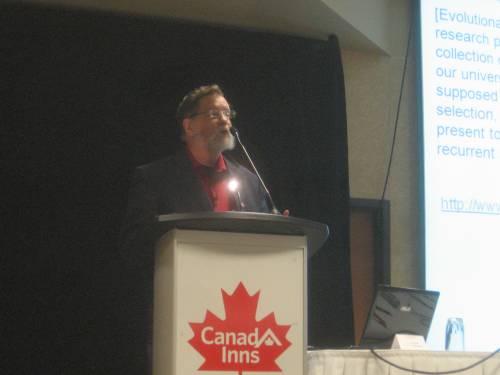
The next part of the day continued with a familiar face: P.Z. Myers of Pharyngula and the University of Minnesota-Morris, who I had last seen at Freethought Festival in Madison two years earlier. P.Z. talked sarcastically about the topic of biology he knew best, with a new twist: "Evolution is more complicated than you think!"
How so? Well, it's more than natural selection, for one: Evolution can occur by other processes as well, such as genetic drift. It also has little to do with "evolutionary psychology;" an uncredible, racist, and sexist ploy to link natural selection to human behavior and say "people are adaptive; therefore they should be kept down."
The dialogue built and gained momentum in unpredictable ways. Eventually we were treated to a picture of a barnacle penis (which was adapted to its conditions) and an observation of how worms millions of years ago changed their environment by burrowing into the ground. Do climate denialists think they're less powerful than worms?
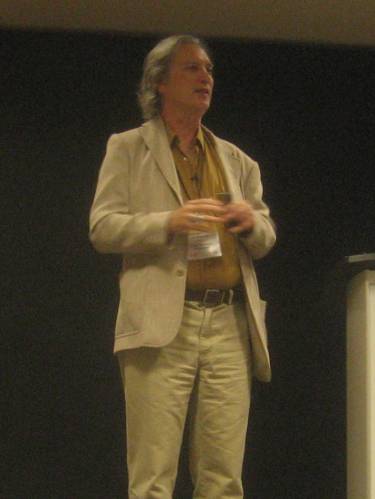
Lloyd Hawkeye Robertson followed, and gave a few lessons on marriage demographic trends, humanist marriages, and northern Saskatchewan history. He discussed the horrible legacy of Canada's Residential Schools...an attempt by churches to "re-engineer" aboriginal children by removing them from their families and instilling assimilationism and Christianity in them by force. The government had a recommendation to close the schools as early as 1912. Churches lobbied to keep them open as an avenue for them to "save souls" by, however, and the last one in Saskatchewan didn't close until 1998. Chilling.
And after a few closing remarks, the conference was over.
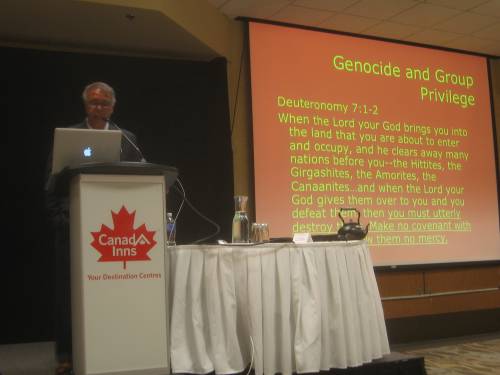
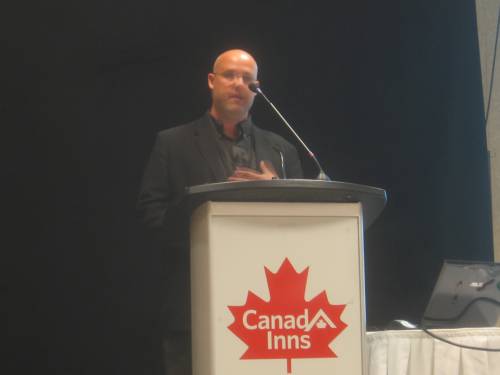
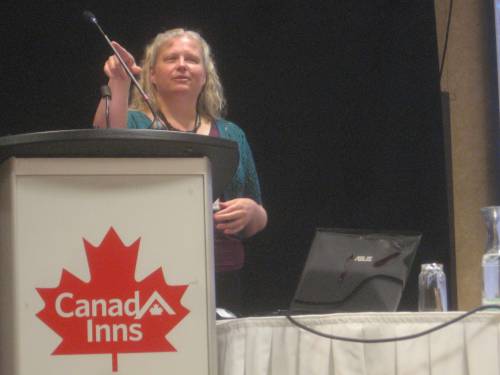


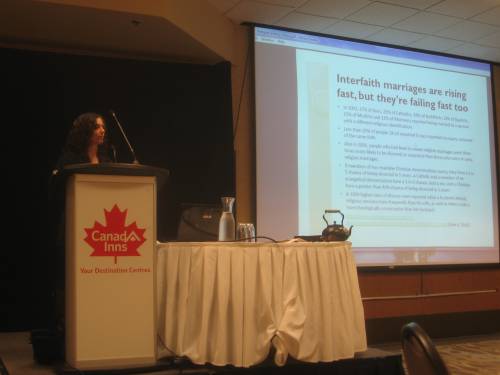









Recent Comments